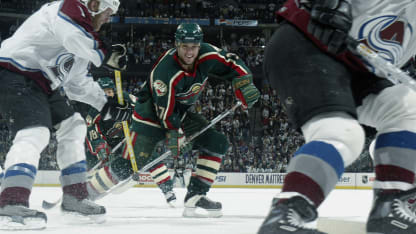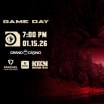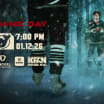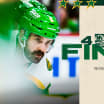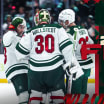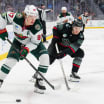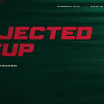"The very first thing that has to happen is, you have to believe," said former Wild forward Wes Walz, now an analyst for the team on FOX Sports North. "Anyone can say they believe, but all the guys in the locker room have to really believe that you have a chance to go up there and win. And I think these guys do."
Walz scored 13 goals and 32 points in 80 games during the regular season in 2002-03, then cranked up his play in the playoffs, tallying seven goals in 18 postseason contests.
In addition to a common belief inside the dressing room, Walz said it's imperative the team narrows its focus. Coach Bruce Boudreau's 'win the week' mantra from the regular season can no longer apply. Now it's about
winning one game
, or on a micro level, winning a period.
"We used to talk about that when we were on our run," Walz said. "You're giving yourself a chance if you tie or win the period. I think that's something that's easier said than done, but if that's something you can do, you just want to try and narrow your focus as best as you can."
Over the years, narrowing the focus has become more of a point inside dressing rooms. While "winning the week" seems broad now, it wasn't an outlook a lot of teams used to have. Often, teams looked at 10 games, or even month-long stretches when trying to galvanize a team.
While that focus has grown tighter, the Wild must do its best to bring it even closer.
"You have to go and win one road game," said Wild assistant coach Darby Hendrickson, another member of that 2003 Wild club. "To me, I narrow it specifically to a lot of [one-on-one] battles. Every little battle, you have to be on the high end of that."
Winning battles was the message relayed to his team by former Wild coach Jacques Lemaire, who gathered his club the night before Game 5 in Denver 15 years ago.
With the expansion Wild facing a two-game hole and needing three straight wins to keep its season alive, few gave Minnesota a chance. Colorado had home ice advantage and four future Hall of Famers (Joe Sakic, Peter Forsberg, Patrick Roy and Rob Blake) on their roster. That doesn't even account for players like Milan Hejduk, Adam Foote and Alex Tanguay, who at the time, were some of the best players in the league at their positions.
"To be perfectly honest, with Zach [Parise] and Ryan [Suter] out of the lineup, the situation [the Wild is] in right now is not much different than us going into Colorado and beating them three times in a row," Walz said.
Winnipeg finished with the second-best regular season record in the League, and had secured the most points on home ice in the NHL during the regular season.
And while the Wild will be without two of its alternate captains, there is one more lesson to be learned from 2003, one that Minnesota can absolutely take to heart.
After Lemaire stressed battle level and compete in that meeting 24 hours before the game, Walz said players looked each other in the eyes and vowed to be the hardest-working team in the arena the following night.
Winning the game was never mentioned.
"Obviously that's the end goal, but we never really talked much about winning or losing," Walz said. "The only thing we ever talked about was that they weren't going to play harder than us, they weren't going to block more shots and they weren't going to fight harder for pucks. And if their skill happened to win out, and they made a few more plays or their goalie made a few more saves, then we'd tip our cap and we'd shake their hands and the end of the game.
"That was the same scenario, the same outlook we had before every game we had when we knew we needed a win to stay alive."
